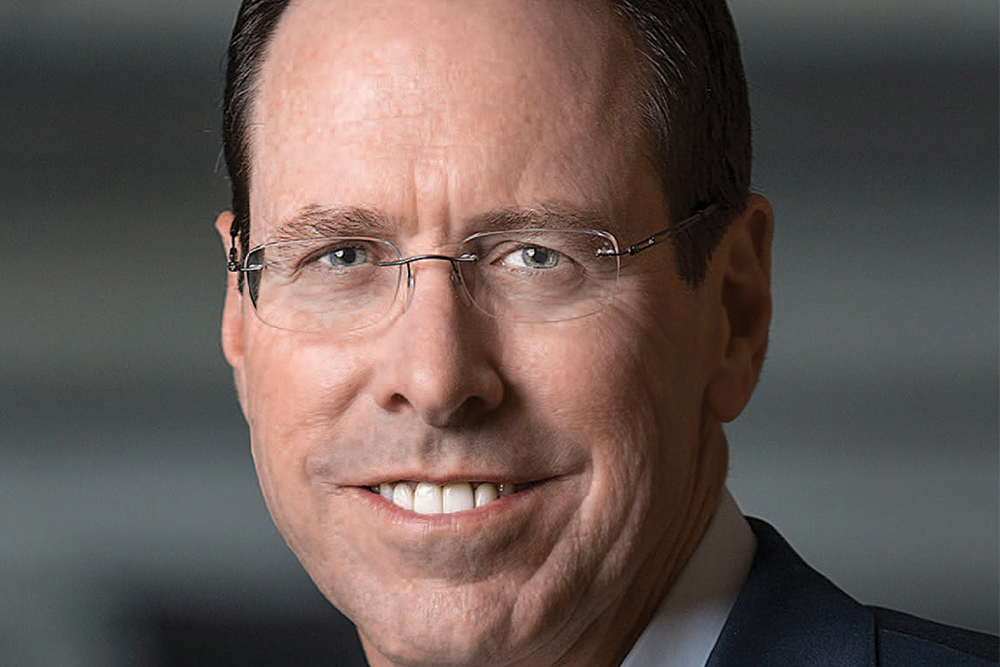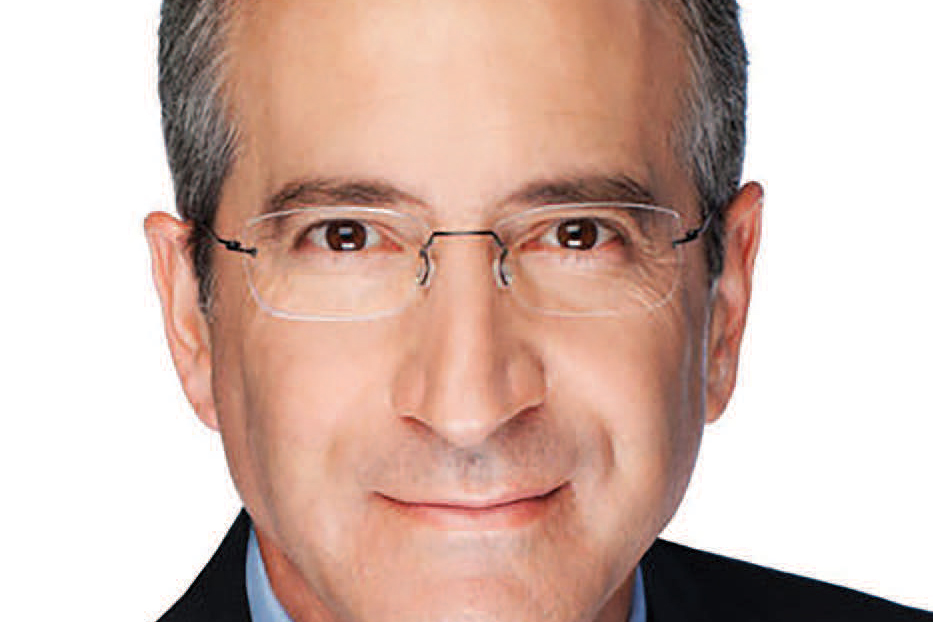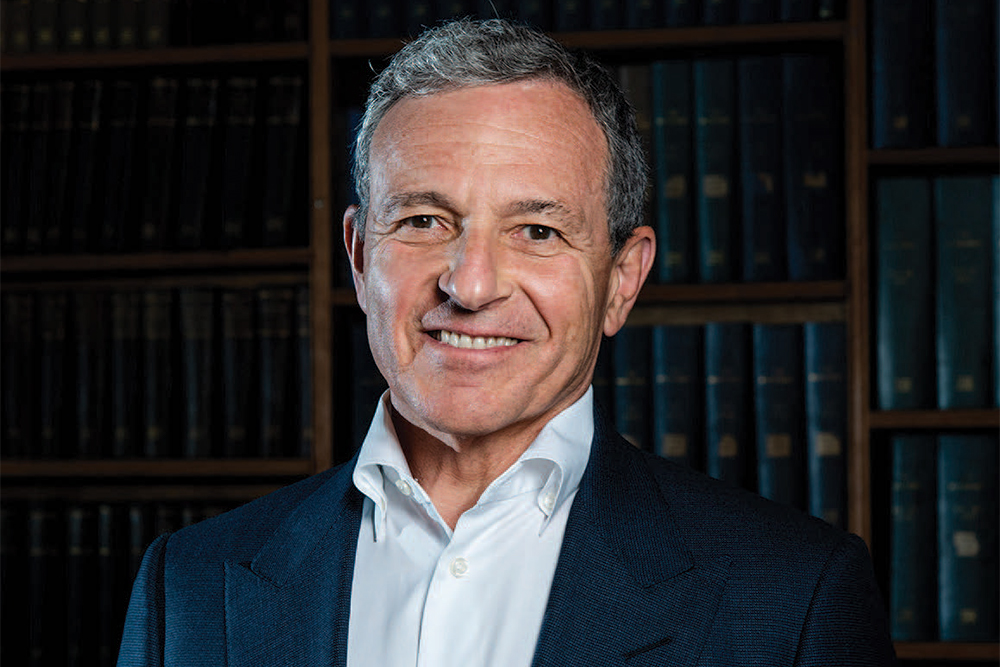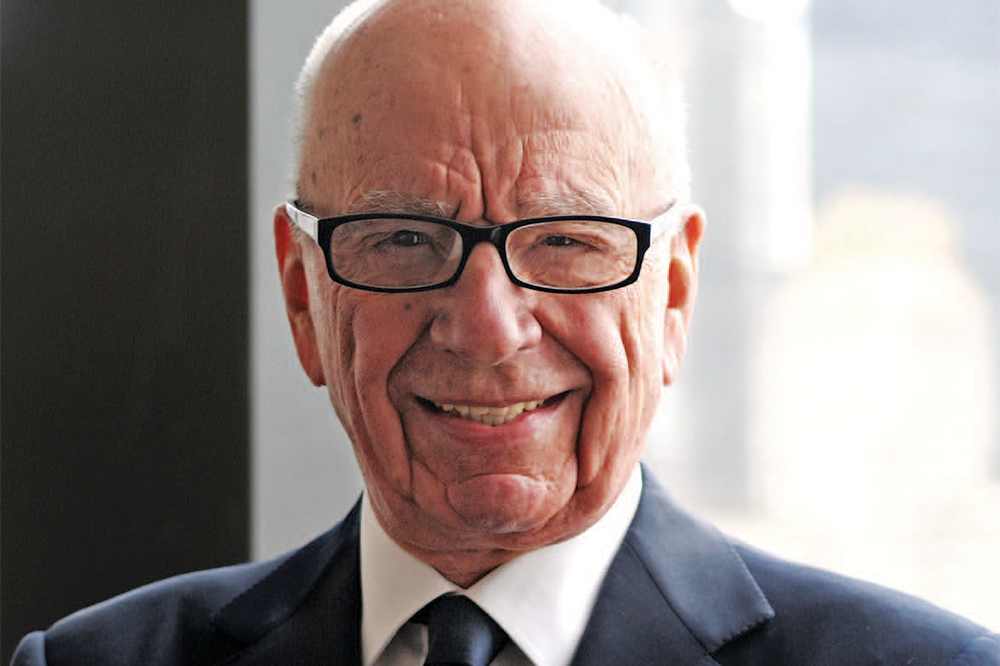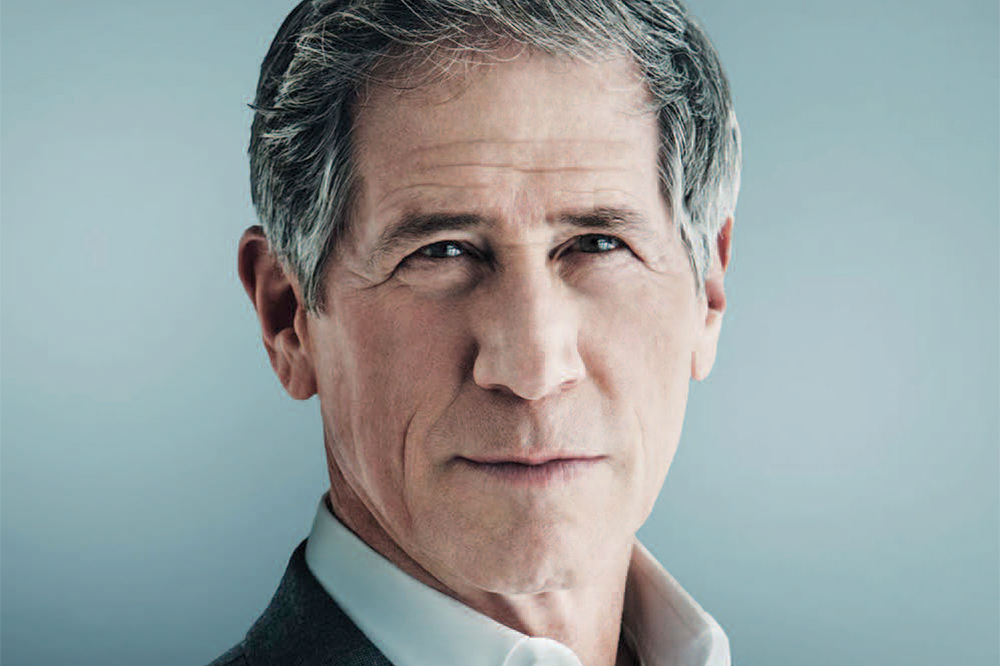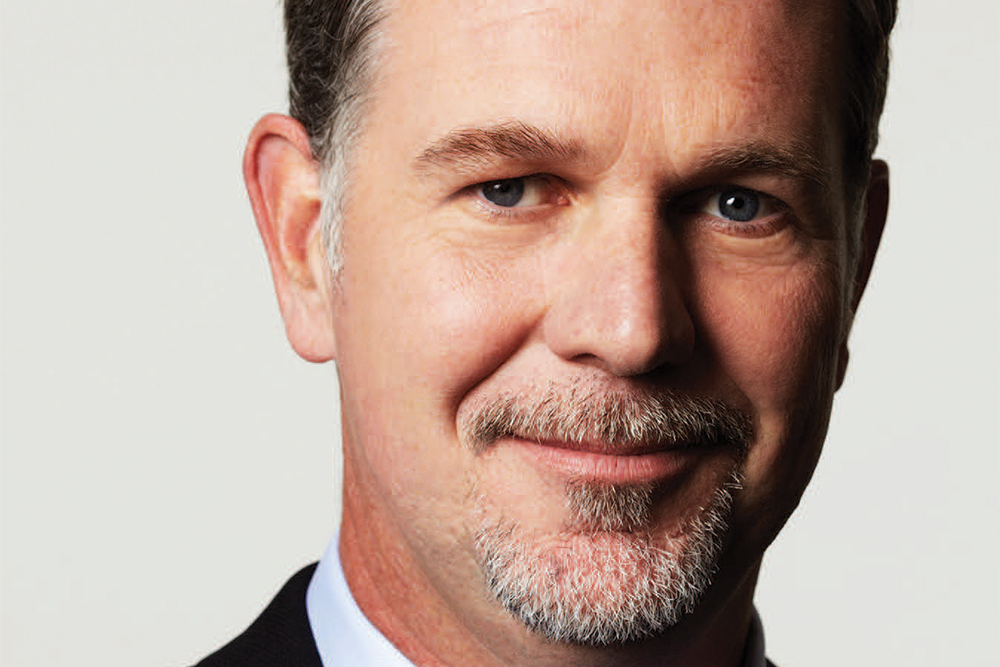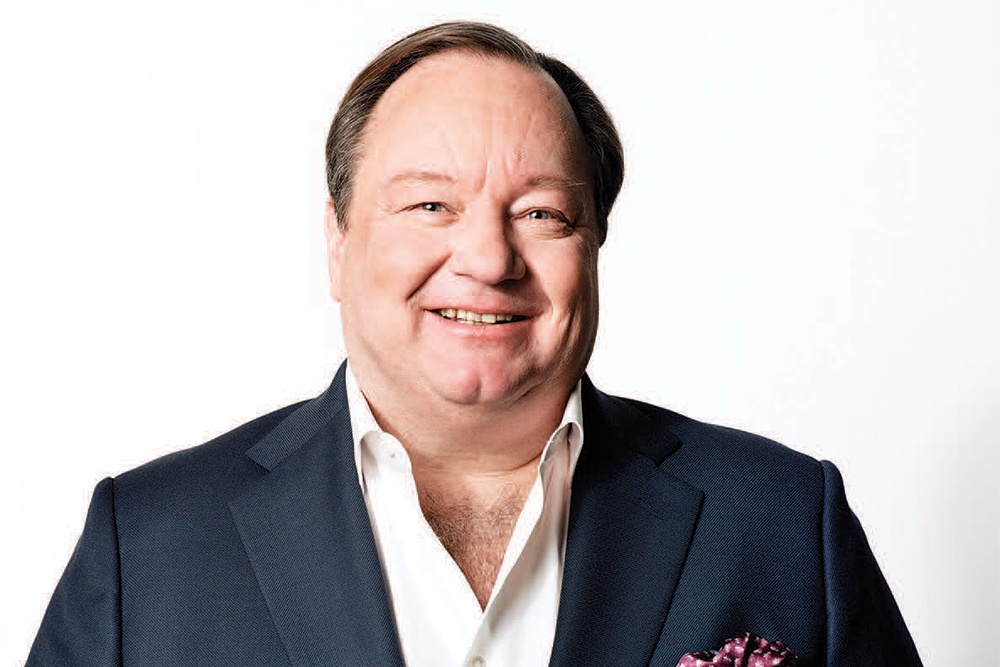What the Media’s Most Powerful Executives Were Paid in 2019
By David Lieberman
LOS ANGELES (Variety.com) – Media chieftains don’t suffer from low self-esteem. Industry titans including Bob Iger, Reed Hastings and Rupert Murdoch probably need big egos to believe they’re entitled to make far more than most CEOs at similarly sized companies — and much more for 12 months of work than an average employee could make in several lifetimes.
It would take about 410 years for a typical employee at AT&T, Comcast, Discovery, Disney, Fox, Lionsgate, Netflix or ViacomCBS to match the $37.6 million median size of the packages paid to each CEO last year, according to their most recent proxies.
But the period of outsize, some might even say gluttonous, compensation may be over — at least for now. The COVID-19 crisis and resulting recession have led to layoffs or furloughs at companies including Comcast, Disney and ViacomCBS, and intensified scrutiny into how their boards reward their leaders.
“Change is coming,” predicts Rosanna Landis Weaver, program manager of shareholder advocacy group As You Sow. “There’s a lot of populist outrage over this, and this level of inequality is destabilizing.”
Some have made a show of shared sacrifice by forgoing their salaries, but not the bonuses and stock awards that account for the bulk of their compensation.
“The message that they’re sending is that ‘We’re all in this together,’” says Robin Ferracone, CEO of Farient Advisors, a performance advisory and strategic compensation firm. “It’s not going to save the companies that much money. But it’s an important step when people are losing their jobs.”
Will this sense of solidarity last? Perhaps. The images of extravagance that emerge from Variety’s annual deep-dive look at CEO compensation might seem like snapshots from a time gone by if COVID-19 stay-at-home mandates accelerate consumers’ shift from theatrical movies and cable television programming bundles to less expensive — but also lower-margin and riskier — streaming services from giants led by Netflix.
Charles Elson, director of the University of Delaware’s John L. Weinberg Center for Corporate Governance, is skeptical. “Companies may emerge from this and shrink their workforces,” he says. “But somehow I think media executive salaries will return to normal.”
To be sure, media boards have a track record of rewarding CEOs in bad times as well as good. Investor advisory consultant Institutional Shareholder Services gave all of the companies Variety tracks — except AT&T and Disney — the lowest possible score for what it calls “governance risk.”
That’s due in part to the dual-class shareholder system at the likes of ViacomCBS and Comcast, which give controlling shareholders Shari Redstone and Brian Roberts virtually absolute authority. Corporate boards, composed of loyalists, often rubber-stamp exorbitant pay packages and ensure that bonus goals remain within reach.
That creates a skewed compensation picture for other companies, including Disney and AT&T, that don’t have dual-class control. They feel competitive pressure to benchmark their executives’ pay against their rivals’.
“Media firms live in a Lake Wobegon world,” says Lawrence Mishel, distinguished fellow at the Economic Policy Institute, referencing the fictional town created by Garrison Keillor where all of the children are exceptional. “Everyone believes their executives are above average and that their pay should be above average.”
But the widely reported top-line CEO salary numbers provide an incomplete, and often distorted, picture of a company’s pay and priorities. Take the 2019 compensation for our eight Big Media chiefs. The official numbers add up to $285.7 million.
That massive total ignores stock holdings. Hastings’ Netflix stock is worth $4.1 billion and has appreciated $1.1 billion since the beginning of 2020 — dwarfing the $38.6 million he received in 2019 compensation. And many CEOs make additional money elsewhere; Fox’s Rupert Murdoch collected $5 million at News Corp., which he also controls.
The pay packages are justified by claiming they are needed to retain their top talent. However, CEOs of these public firms are rarely recruited by competitors, who prefer to promote from within. “They’re not Lebron James, who can take his skills anywhere and improve a team,” notes “The CEO Pay Machine” author Steven Clifford.
Media companies say the lopsided compensation reflects CEOs’ performance — especially when the stock price rises. But the nation’s largest companies no longer believe that’s the appropriate yardstick for their achievements. In August, Business Roundtable announced a surprising philosophical shift when it said that companies owe loyalty to customers, employees, suppliers and communities as well as shareholders.
To reflect that, we’ve added assessments of each company from JUST Capital — a nonpartisan nonprofit that advocates stakeholder capitalism, which considers corporate policies affecting workers, customers, communities, the environment and shareholders.
The new light casts unflattering shadows on some of the chiefs in our group. Take Iger. The Disney executive chairman’s $47.5 million package made him our highest-paid chief for 2019. It would take 911 years for average Disney employees — a group that includes low paid theme park workers — to make as much as he did last year. But his company ranked 858 among the 922 that JUST Capital analyzed in paying workers a living wage, 893 in charging fair prices for its products or services and 908 in paying the CEO fairly in relation to workers. Fox, which paid Rupert Murdoch $42.2 million in 2019, ranked 882 among all companies in the diversity and inclusiveness of its workplace. And Comcast, where Brian Roberts made $36.4 million, was 916 in customer service. Somehow those dismal assessments were not reflected in their take-home pay.
AT&T
Randall Stephenson, Chairman, CEO, President $32.0M/+10.0%
2019 Stephenson compensation:
John Stankey, President, COO
2019 Stankey compensation: $22.5M/+35.8%
Median employee compensation: $98,630
Stephenson/Stankey pay ratio to median employee: 325/228
2019 total shareholder return: +45.4%
Board: 10 men/3 women
Average age of board members: 63
2019 seems like a lifetime ago for AT&T. Shares in the owner of WarnerMedia and DirecTV appreciated 45.6% in the 12 months ending in December — then lost almost all those gains in the COVID-infected first quarter of 2020.
But the calendar year is what counted in the compensation calculations for CEO Stephenson and chief operating officer Stankey — who oversees WarnerMedia and will replace Stephenson in July.
The outcomes mask what a turbulent period it was for the world’s most indebted company. The telco had to replace the heads of Warner Bros., HBO and Turner in 2019. Stephenson’s and Stankey’s careers also looked endangered when billionaire Paul Singer’s activist hedge fund Elliott Management Corp. bought a major stake in AT&T and chastised it for failing to reverse the two-year collapse in its stock price. A truce was reached after AT&T promised to spend billions on stock repurchases — a vow it broke this year when the economy tanked.
The deal bolstered the stock, and Stephenson’s bonus. Stankey benefited even more from the board’s decision to benchmark his compensation to what it diplomatically calls “the unique pay practices in the media and entertainment industry” — including big spenders Comcast, CBS, AMC Networks and Discovery.
In June 2018, when AT&T bought Time Warner, directors boosted Stankey’s short-term incentive bonus target by 252% to $7.4 million. The higher target was in effect for all of 2019 versus half of 2018. The board also figured that he deserved 102% of the target, up from 88%. That more than made up for the loss of the $2 million “merger completion bonus” the company gave him in 2018.
Comcast
Brian Roberts, Chairman, CEO, Comcast $36.4M/+3.8%
2019 Roberts compensation:
Stephen Burke, Chairman, NBCUniversal $42.6M/+6.5%
2019 Burke compensation:
Median employee compensation: $78,869
Roberts/Burke pay ratio to median employee: 461/539
2019 total shareholder return: +34.7%
Board: 7 men/3 women
Average age of board members: 63
Sorry, Comcast execs, but one of your most extravagant and controversial benefits is history.
The cable and broadband giant that owns NBCUniversal stopped guaranteeing a risk-free 9% interest rate — 12% for CEO Roberts — on earnings stashed in the company’s Deferred Compensation Plan.
The board says it bent to a “few” shareholders who objected to a benefit that pays execs even when the stock price declines. Directors say they still “strongly believe” the guaranteed payments attract and keep talent.
Perhaps. Then why did Roberts make $4.7 million of his $36.4 million package last year from the plan? He’s possibly the world’s most unlikely flight risk: He controls a third of Comcast’s voting shares — and its Articles of Incorporation say that he must be chairman, CEO and president “if he is willing and available to serve.” The CEO recently announced that he will donate his $3.2 million salary to COVID-19 relief efforts, and that the company is providing $500 million to support employees who have been impacted by the health crisis.
The $4.5 million from the Deferred Compensation Plan that Comcast contributed to NBCUniversal chairman Burke’s $42.6 million package didn’t keep him from announcing that he’ll retire in August. He ended 2019 with nearly $202 million in the fund. Roberts and other Comcast executives won’t feel much pain from the change in the plan. Execs can park their savings in more conventional funds that directors say “will offer above-market interest.”
Directors liked Roberts’ work in 2019. They awarded him a $10 million bonus, slightly more than the target.
The board remains 70% male, an improvement from last year, because one more woman, former Bright House Networks and Time Warner Cable executive Nomi Bergman, was tapped as a director.
Discovery
David Zaslav President, CEO $45.8M/-64.6%
2019 Zaslav compensation:
Median employee compensation: $79,343
Zaslav pay ratio to median employee: 578
2019 Total shareholder return: +32.4%
Board: 11 men/1 women
Average age of board members: 68
The Discovery chief’s $45.8 million package for 2019 appears to be a big drop from 2018’s eye-popping $129.5 million. But it’s a 29% increase if you ignore the one-time accounting value of the contract-renewal bonus he received last year — which the company said was better for comparison purposes.
Discovery determined that it would take 578 years for an average employee to match what Zaslav made in 2019. It computed that ratio with a figure for average employee income that’s 7.4% lower than it was in 2018.
Why such a big difference? This time Discovery included employees it picked up in March 2018 when it bought Scripps Networks. They were left out of last year’s calculation.
The CEO-to-employee ratio also is high because a provision from Zaslav’s 2018 contract kicked in, raising the target for his annual Non-Equity Incentive Plan Awards by 144% to $22 million from $9 million.
The board awarded him 99% of the new target. The company met all of its financial goals, it determined. It also figured he met 97.9% of his subjective qualitative goals, which were based on building a direct-to-consumer business, driving “cost synergy, revenue and free cash flow” and integrating Scripps Networks.
The 12-member board only has one woman. That imbalance is partly attributable to the governance structure. Three seats are assigned to each of four groups of shareholders including Advance/Newhouse and John Malone’s Liberty Media. That’s also why Discovery’s board is by far the oldest in our group, with four members over 74.
Disney
Robert Iger, Executive Chairman $47.5M/-27.6%
2019 Iger compensation:
Median employee compensation: $52,184
Iger pay ratio to median employee: 911
2019 total shareholder return: +13.4%
Board: 5 men/4 women
Average age of board members: 60
Disney and Iger kind of listened to the many shareholders who say the company pays him too much. Last year he agreed to trim $5 million from the target for his annual long-term incentive award, $8 million from his target bonus and the $5 million bonus his 2017 contract renewal included if he stayed in his job through July 2, 2019.
That reduced his total to $47.5 million, making him the highest-paid CEO in our group. At the March shareholder meeting, those holding 46% of Disney shares still opposed an advisory resolution to approve the compensation plan.
Even with the cuts, 2019 was Iger’s second-most-lucrative year since 2008, when he benefited from a contract renewal bonus. His latest package would have been his highest since 2008 had the board not given him a $26.3 million bonus in 2018 for making the deal with Fox.
Iger passed the CEO title to former parks chief Bob Chapek on Feb. 25. He became executive chairman but remained the CEO’s boss — with no apparent cut in pay.
A month later, Iger agreed to temporarily forgo his $3 million base salary, and Chapek took a 50% cut in his $2.5 million salary. The new CEO’s three-year contract also includes an annual bonus targeted at $7.5 million and a long-term incentive award targeted at “not less than $15 million.”
Iger usually leaps past the targets the board sets for his bonus. Last year he made nearly $21.8 million from a bonus that’s targeted at $12 million. Directors gave him 173% of the part of his bonus tied to Disney’s financial performance and 200% of his subjective qualitative targets.
Directors said Iger had “a year of extraordinary accomplishment.” They gave him credit for, among other things, the Fox deal, the launch of Disney Plus and hit movies including “Avengers: Endgame” and “Captain Marvel.”
His industry-leading package made him 911 times more valuable than a typical Disney employee. That group averaged $52,184 in pay, bonus and company contribution to health insurance — up 13% versus 2018, which the proxy attributes to “the broad-based salary increase the Company provided in 2019.” In 2018, a union-commissioned Economic Roundtable survey of Disneyland employees found that 85% made less than $15 an hour.
At the time of Disney’s annual meeting, the board maintained its 5-to-4 ratio of men to women. That changed to 6 to 4 this year when Chapek joined.
Fox
Rupert Murdoch, Executive Chairman $42.2M/-14.4%
2019 Murdoch compensation:
Median employee compensation: unreported
Murdoch pay ratio to median employee: NA
2019 total shareholder return: NA
Board: 6 men/1 woman
Average age of board members: 61
Fox loved Rupert Murdoch for his $71 billion sale of its struggling studio and several TV assets almost as much as Disney loved Iger for buying them.
Fox Corp., the slimmed-down successor to 21st Century Fox, awarded Murdoch $42.2 million for the fiscal year that ended in June, including $15.1 million in special stock and option awards tied to the Disney deal.
Although the total dropped from 2018, it’s his second-highest compensation package in at least a decade. Murdoch “imbues the Company with his entrepreneurial zeal and provides the board with strong operational leadership and broad strategic vision,” directors gush in the latest proxy.
His son, CEO Lachlan Murdoch, ended the year with $42.1 million, including $28.1 million in transaction-related compensation.
Rupert Murdoch’s annual salary dropped to $5 million from $7.1 million. His bonus is targeted at $6 million and can go as high as $12 million — down from a maximum of $21 million.
But Fox kept the annual Shareholder Alignment Plan award as an “additional incentive” for executives. That seems to mean that Fox’s largest shareholder will collect an annual stock payment targeted at $7 million to be sure he looks after his own interests.
Lachlan’s salary remains at $3 million. The board set a $6 million target for his bonus, which can go as high as $12 million — down from $16 million at 21st Century Fox. His SAP award is targeted at $11 million.
The execs agreed in April to give up their base salaries for five months ending in September.
The board of the owner of Fox News says that a “diverse and inclusive workplace is not merely a strategy or business objective; it is fundamentally woven in the fabric of the Company.”
And yet, the Murdochs found just one woman for the seven-member body.
Lionsgate
Jon Feltheimer, CEO $6.6M/-54.1%
2019 Feltheimer compensation:
Michael Burns, Vice Chairman $5.2M/-42.3%
2019 Burns compensation:
Median employee compensation: $117,628
Feltheimer/Burns pay ratio to median employee: 56/44
2019 Total shareholder return: -37.9%
Board: 10 men/3 women
Average age of board members: 61
In 2017, Lionsgate turned down an offer from Hasbro that would have sold the studio behind “The Hunger Games” to the toymaker for $40 a share, believing that it undervalued the company. That decision doesn’t look so great in retrospect given that Lionsgate’s stock currently trades at less than $8.
It would be easy to blame some of the downturn on COVID-19, but even before coronavirus turned the world upside down, Lionsgate’s stock was getting pummeled. Investors believe the company doesn’t have the franchises to compete with rivals such as Disney, and they’re also wary of the $2.7 billion in debt it piled on four years ago to buy cable channel Starz.
CEO Feltheimer did see his compensation packages fall substantially in 2019, down more than 50%, but that’s partly due to a contract extension he signed in 2017 front-loaded with stock awards. Despite the lackluster performance, Feltheimer and vice chairman Burns both received more than 80% of their possible bonuses, amounting to $3.1 million in cash and $2.2 million, respectively, as well as potentially millions more in equity awards. The company praised the two for their “great leadership” in overseeing strategic initiatives that will “drive future growth.”
Netflix
Reed Hastings, Chairman, CEO $38.6M/+6.9%
2019 Hastings compensation:
Median employee compensation: $202,931
Hastings pay ratio to median employee: 190
2019 total shareholder return: +20.8%
Board: 7 men/4 women
Average age of board members: 56
Netflix dances to its own drummer when it comes to compensation. And it had to barnstorm big investors’ conference rooms last year after it narrowly lost an advisory say-on-pay vote — making it among just 3% of U.S. corporations that failed to win shareholder support for executive compensation.
Stockholders objected to its unusual decision to eschew so-called performance-based bonuses tied to how well executives and their companies meet predetermined annual goals. Instead, Netflix computes compensation based on how much it’s willing to pay, how much it would cost to replace the person and how much the person could expect to be paid elsewhere. The company calculates its offer — and leaves it to the employee to decide how much should come from cash or stock options.
Last year, 97% of CEO Hastings’ $38.6 million package came from options. Chief content officer Ted Sarandos bet about 48% of his $34.7 million on the stock.
Opponents say the policy rewards management even in bad years. The company counters that it attracts talent and promotes long-term planning. The stock price must appreciate 40%, it says, for options to pay more than cash.
So did Netflix scrap the unpopular policy? Of course not. But “we have attempted to better describe our program,” the proxy says. The Compensation Committee also says it’s “mindful” of last year’s vote.
Still, it piled $2 million onto Hastings’ total based on “his accomplishments in developing and evolving the business strategy,” the company’s performance and “his ability to attract and retain senior management.”
One other change: During the year, Netflix ended its deal to lease two jets that Hastings owns. As a result, he just made $508,438 from the arrangement — down from $1.2 million in 2018 — although he also received $465,637 to reimburse him for “personal use of company aircraft.”
Substantial as these sums are to most people, they’re tiny compared with Hastings’ wealth from the 9.3 million Netflix shares he owned at the end of 2019, equal to about 2.1% of the company. They’re worth about $4.1 billion.
Netflix’s average employee made $202,335 last year. Companies compute the number differently, so comparisons are unreliable. Still, this stands out as the highest among the companies we track.
Netflix also has the youngest board in our group. To help prevent a hostile takeover, directors serve staggered, three-year terms. Three are up for election this year, including Hastings.
ViacomCBS
Robert Bakish, President, CEO $36.6M/+83.3% (estimated pay figure)
2019 Bakish compensation:
Median employee compensation: $104,791
Bakish pay ratio to median employee: 349
2019 total shareholder return: -5.4%
Board: 6 men/7 women
Average age of board members: 63
ViacomCBS’ first proxy following CBS’ Dec. 4 acquisition of Viacom is the most creative of this year’s pack.
Consider the imaginative way it calculated CEO Bakish’s compensation versus the median pay for a ViacomCBS employee — which it reported at 349-to-1.
It arrived at that ratio in a roundabout way. ViacomCBS’ official report said he made $8.4 million for the roughly four weeks that he ran the new company.
On top of that, Viacom said Bakish made $24.4 million for the 12 month period that ended on Sept. 30. ViacomCBS’ number lops off roughly a quarter of that because it was earned prior to its official fiscal year. The company figured that Bakish would have been eligible to receive $60.9 million in severance and other payments if he had not become CEO after the deal. But he received none of that amount.
The company made another interesting call that further reduced the CEO-to-employee pay ratio: It figured that the average ViacomCBS employee in 2019 made $104,791 — which it based solely on the pay for CBS’ 15,511 workers. Leaving out the 10,631 Viacom employees who joined ViacomCBS at the same time Bakish did makes a big difference. Viacom reported that its average employee made $39,110 in 2019, since about 30% were low-paid contract workers.
ViacomCBS made another important judgment call by basing the ratio on the estimated pay for Bakish instead of on the compensation for Joseph Ianniello, who had been acting CEO for most of the year — and could have undermined the acquisition if he wanted.
Don’t weep for Ianniello. The executive walked away with $125.4 million. That includes more than $20 million in cash and bonus guarantees CBS gave him in April 2019 to remain to the end of the year. And four months later, when Viacom and CBS reached an agreement, Ianniello won nearly $22 million in stock that CBS described as “an inducement” to stay and “further align his interests with those of our stockholders.”
When the deal closed in December, directors signed him to a 15-month contract, with no cut in pay, to run CBS under Bakish. That paid off for the executive less than two months later when he left the company, collecting top-dollar severance terms, since ViacomCBS said he wasn’t terminated for cause.
The proxy says that management is judged in part on its efforts to “build a workplace culture of dignity, transparency, respect, diversity and inclusion.” The board under controlling shareholder Redstone stands out as the only one in the group we monitor that’s majority female.
NOTES: Most of the information in this story comes from the proxy statements and reports that the Securities and Exchange Commission requires publicly traded U.S. companies to file each year. Overseas companies such as Sony, and privately held ones such as MGM, do not file and are not included in our tally. The SEC filing requirements are designed to help people compare information from different companies. There are some caveats: Companies file reports for their fiscal years. Most coincide with the calendar year, but several do not: Lionsgate’s fiscal year ends in March, Fox’s ends in June and Disney’s ends in September. Our data is from their most recent annual filings.
Our data about the composition and ages of company boards also reflects the information included in the latest proxy statements.
The SEC requires companies to disclose a median employee compensation figure, along with a ratio derived from that total paid to the principal executive officer. Companies calculate the medians differently, so they aren’t comparable.
Although our list focuses on CEOs, for Fox we included executive chairman Rupert Murdoch instead of CEO Lachlan Murdoch; Rupert was widely seen as the company’s key decision-maker
David Lieberman is an associate professor in the graduate Media Management program at The New School.
Jiji Majiri Ugboma contributed to this report.
